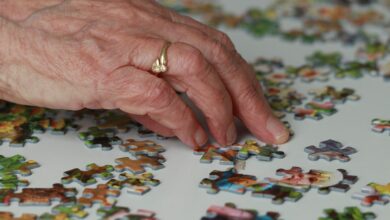The Benefits of Puzzle Games on Maintaining Cognitive Functioning in Aging Populations

One of the primary benefits of puzzle games is their ability to enhance cognitive skills, including memory and attention. These games require us to remember information, focus on details, and use logical reasoning to solve problems. As we engage in these activities regularly, we activate different regions of the brain, strengthening neural connections and improving our cognitive flexibility. This, in turn, can lead to better memory retention and increased attention span, essential skills that tend to decline with age.
Moreover, puzzle games promote problem-solving and critical thinking abilities. The act of deciphering clues, finding patterns, or figuring out solutions in these games exercises our analytical skills, improving our ability to think logically and strategically. These cognitive skills are not only beneficial in the context of puzzle games but also in everyday situations, allowing aging individuals to approach challenges with a more systematic and efficient mindset.
Additionally, puzzle games can have a positive impact on mood and overall mental well-being. Engaging in these activities can be a source of enjoyment and relaxation, reducing stress and providing a sense of accomplishment when completing a challenging puzzle. Many aging individuals may experience feelings of isolation or boredom, particularly if mobility or health issues limit their activities. In such cases, puzzle games offer an accessible form of entertainment and mental stimulation that can boost mood and provide a sense of purpose.
Furthermore, studies have shown that participating in mentally stimulating activities, like puzzle games, can help delay the onset or progression of cognitive decline and related conditions, such as dementia or Alzheimer’s disease. The increased cognitive reserve built through regular puzzle game practice may create a buffer against age-related cognitive impairments. This is supported by research that shows individuals who regularly engage in mentally stimulating activities throughout their lives have a lower risk of developing dementia compared to those who don’t.
To maximize the benefits of puzzle games, it is recommended to incorporate variety and challenge into the activities. Choosing different types of puzzles that target different cognitive skills can provide a holistic mental workout. Additionally, increasing the difficulty level or progressing to more complex puzzles as skills improve can continually challenge the brain and promote continued growth.
In conclusion, puzzle games offer various benefits in maintaining cognitive functioning in aging populations. From enhancing memory and attention to fostering problem-solving skills and promoting overall mental well-being, these activities provide a fun and accessible way for older individuals to exercise their brains. By incorporating puzzle games into their daily routines, aging individuals can not only enjoy hours of entertainment but also potentially delay cognitive decline and preserve their mental sharpness.





